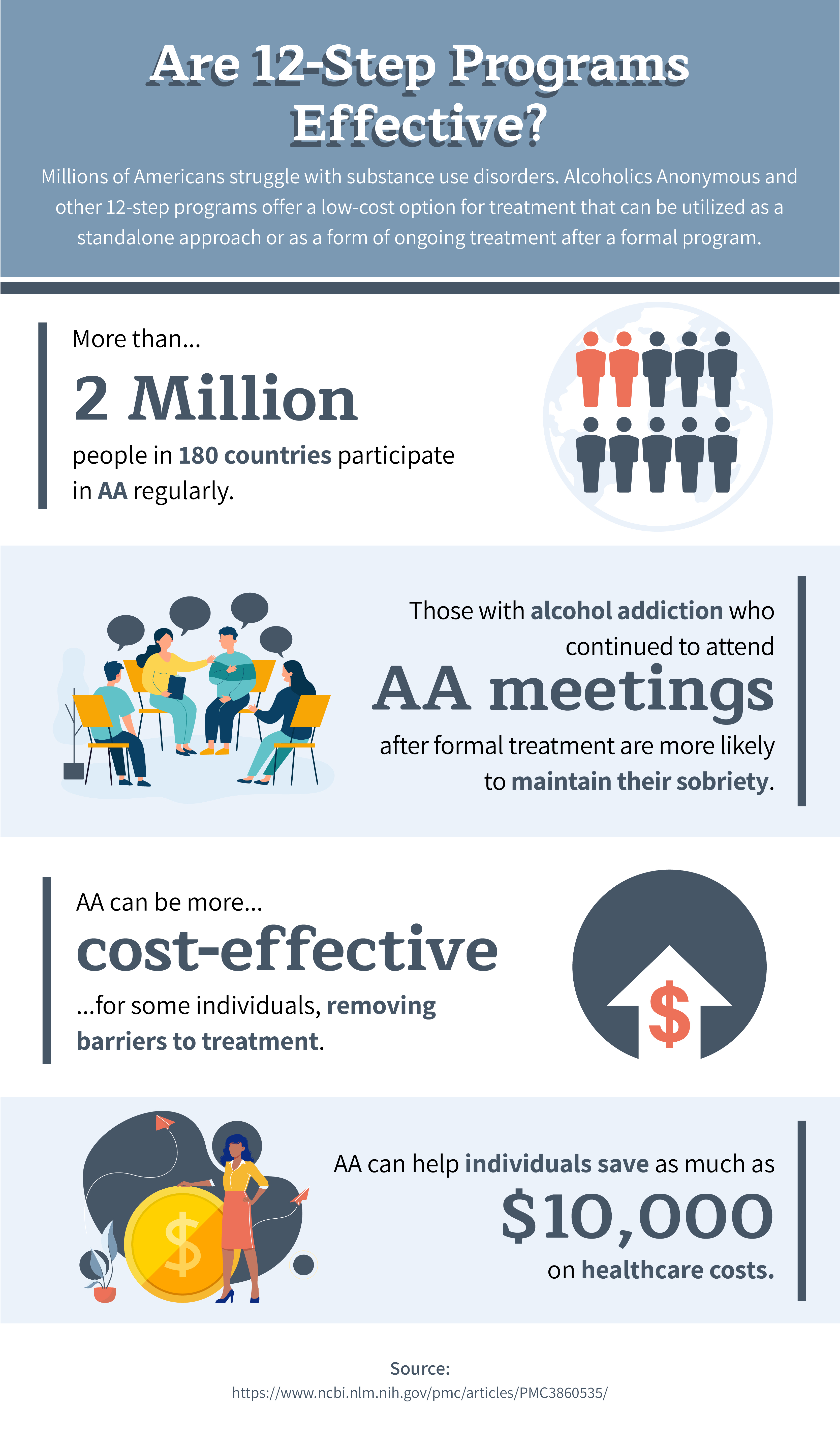The 12 steps are an effective, widely used approach to addiction treatment.
For many of those in recovery, staying sober is more difficult than the process of getting sober. After detox, our patients begin a treatment program that will give them the tools for recovery. At San Antonio Recovery Center, we incorporate the 12-step approach into treatment. This program can help you on the road to recovery. Understanding what a 12-step program is can help you know what to expect and can help you get the most out of your time in treatment.
The 12 steps are an effective, widely used approach to addiction treatment. During 12-step meetings, you’ll get to know others in recovery and hear about their experiences. You will most likely be introduced to the 12 steps during detox or a residential treatment program, but when you move to an Intensive Outpatient Program, you will have a greater opportunity to integrate the 12 steps into your recovery. Even after completing a program in our treatment center, you can participate in 12-step meetings on an ongoing basis. These meetings are widely available and can help you maintain your commitment to sobriety.
Learn more by reaching out to San Antonio Recovery Center at 866-957-7885 today or by connecting with us online. Our team members will be happy to answer your questions and help you begin your journey to recovery.
People have struggled with addiction and alcoholism for thousands of years, and for most of that time, it baffled medical professionals. Up until the 1930s, facilities were only able to help people detox, and then the patients were on their own. Medical professionals couldn’t understand why people would go back to alcohol or drugs despite the negative consequences. It wasn’t until Alcoholics Anonymous started that people were actually beginning to stay sober.
Alcoholics Anonymous is the most well-known 12-step program. This program was founded in 1935 by Bill Wilson and Dr. Bob Smith. They wrote a guide to the 12 steps called the “Big Book” and began introducing the principles of their program to others.
Wilson and Dr. Smith found that people in addiction recovery helping each other had incredible results. You may know this to be true from your own experience as well when you look back on it. You may feel reluctant to share intimate details of your life with a doctor, but it’s easier to share with someone with an addiction. A certain type of trust happens almost immediately when one person with an addiction connects with another.

The 12 steps that those in these programs follow have to do with spiritual growth, abstinence, and support from others. They include:
12-step meetings are made up of people in recovery who might be at different places in their journeys to sobriety. During meetings, those with more experience in sobriety can encourage those who are new to the program. Participants can support each other while going through different steps as well.

You have likely heard about meetings for different types of programs, but they are only a small part of how addiction treatments work. Maintaining your sobriety after treatment takes more than just attending meetings. Regular attendance at Narcotics Anonymous meetings or Alcoholics Anonymous meetings is a great resource for staying sober. To this end, Alcoholics Anonymous believes there are three components to recovery.
The unity refers to the meetings because it’s essential to have a strong support group in your recovery from addiction. The recovery portion is what the 12 step programs are all about: working through the sources of your addiction. The 12 steps are designed to help you better understand yourself and help improve your life. Being of service is the last crucial part of recovery because helping others is a great way to help yourself.
We help our patients work through the underlying causes of addiction. Through our approach to treatment, you can rebuild your life.
One of the biggest misconceptions is that 12-step programs are based on religion, but this isn’t true. Our addiction treatment center wouldn’t recommend any program that’s based on a specific religion. What the founding members of Alcoholics Anonymous found was that you need to find a power greater than yourself. Although they use the commonly understood term “God”, this doesn’t have to refer to any type of religious god.
The reality is that most people trying to get sober have never been able to do it on their own. Your God or higher power can be anything greater than yourself, which may simply be nature or the universe. This higher power is of your own understanding and doesn’t have to be the same as anyone else’s.
At San Antonio Recovery Center, we welcome individuals from all backgrounds and of all religions. We’ll never push a form of spirituality on our guests. Instead, you can incorporate the higher power that feels right to you into your 12-step program.
One reason we’ve incorporated the 12 steps into our philosophy? They’ve been proven to work. Similar to group therapy, 12-step meetings help those in recovery build strong networks of support with others. Hearing about the successes and challenges that others have faced on the road to recovery can be motivating, inspiring, and helpful as our patients work towards long-lasting recovery themselves. 12-step programs also provide structure and routine, which can be essential for those in early recovery.
Some of the other benefits of 12-step programs include:
The 12-step model is time-tested, widely used, and effective. Even though we might use a variety of different approaches to treatment in our center, the core of our philosophy of treatment rests on the 12 steps.
The 12 steps are an invaluable part of our treatment programs, but they are also just that—a part of a comprehensive approach to treatment. Each of the patients in our treatment center receives an individualized treatment plan to help them reach their goals. We believe that recovery from drug and alcohol addiction requires a full spectrum of treatment. Some of the other services and approaches to care that we offer in our treatment center include:
In addition, in our center, you’ll find peaceful living spaces and lounge areas and a number of amenities to help make your time in treatment as comfortable as possible. Sustainable recovery is our goal, and through 12-step meetings and our range of addiction therapy services, lasting change is possible.
Don’t hesitate to get the help you need. Freedom from addiction to drugs or alcohol is possible, and it begins with a call to San Antonio Recovery Center at 866.957.7885 today. Our team is ready to answer your questions, tell you more about program specifics, and walk you through our admissions process. Contact us today and begin to heal.
At San Antonio Recovery Center, we help our patients change their lives. Our team of addiction treatment specialists understands the unique challenges those in recovery can face. We help our patients every step of the way, and the 12 steps are just part of our comprehensive approach to treatment.
San Antonio Recovery Center is an addiction treatment program that helps you build a foundation for sobriety. Not only will we introduce you to 12-step programs, but we’ll also work closely with you in our supportive, therapeutic environment. We offer multiple levels of care and work with your insurance to give you the best treatment possible.
Call us today at 866-957-7885 or connect with us online to find out if you’re eligible for our 90-day treatment program. We can answer any questions you have and help you begin the journey to recovery.
contact us now!
